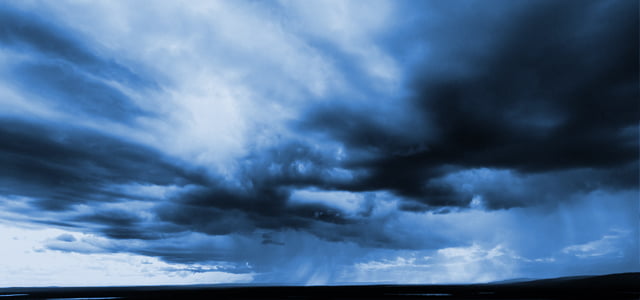Frequently asked questions
If you have a question we have not answered please get in touch and we would be happy to help.
Please email info@ifonlycharity.org.uk
- I’m sorry this happened
- It’s not your fault
- I believe you
- You are not alone
- You can trust me
- This doesn’t change how I think of you
- Are you open to seeking medical attention
- How do you want me to help you
- I am here for you, but I’m not a professional
A strong support network is paramount to a survivor’s recovery journey. It can be difficult to know exactly what is helpful or needed.
(Please see our Companions section which gives some ideas of how best to help)
In order to support a survivor (particularly when they first disclose their abuse) it is important to have an understanding of the effects of child sexual abuse. What we say to a survivor and how we say it can be either helpful or unhelpful and in some cases even detrimental. There is a lot of helpful information available about trauma and how it effects the brain and nervous system. We recommend that survivors and their supporters check out the psycho educational material on our resources page. If someone has trusted you enough to share their experiences with you:
- Believe Them
- Listen Without Interrupting
- Validate and Reassure them
- Help them to Explore and Research the next Steps they can take.
If you are worried or concerned about a child, even if you are unsure whether the child is being sexually abused, you can contact the NSPCC about your concerns. Whether you want to report something or you are not sure what to do they are there to listen, offer advice and support and can take the next steps if the child is in danger.
You can contact the NSPCC helpline by calling 0808 800 5000 Monday – Friday 10am – 2pm or emailing help@NSPCC.org.uk anytime for free.
You do not have to say who you are.
If you think a child is in danger, please call 999 immediately
The changes can be physical and emotional and may not necessarily be dramatic. They could be subtle changes. Examples as below:
- Sudden changes in behaviour
- Language or sexual behaviour you would not expect from them
- Anxiety
- Depression
- Changes in their mood, irritable, angry. Anything out of the ordinary
- Fear of being alone with a particular person
- Fear of being touched
- Changes in quality of schoolwork/grades
- Self harm
- Eating more or less than usual
- Substance abuse
- Bed wetting
- Trouble sleeping
- Problems walking or sitting
- Underwear stained with blood or other discharge
- Rectal bleeding
- Drawings with sexual content
The prevalence of child sexual abuse is difficult to determine because the crimes are often not reported. The actual number of cases will always remain unknown due to the high number of unreported cases.The true number of cases are most definitely far greater than the recorded numbers. The statistics are therefore unrealistic and do not determine the full extent of child sexual abuse. We do know that images and videos are being downloaded and traded via the internet prolifically.
According to the statistics provided by the charity Rape Crisis, 1 in 6 children have been sexually abused before the age of 18, 1 in 4 women have been raped or sexually assaulted as an adult, 1 in 18 men have been raped or sexually assaulted as an adult.
According to the criminal injuries helpline, in England and Wales 1 in 5 (20%) of women and (4%) of men will experience sexual violence in their lifetime.
That is 85,000 women and 12,000 men a year, which is 11 sexual offences every hour.
When a child or young person is forced or enticed into sexual activities, not necessarily involving a high level of violence and whether or not the child is aware of what is happening. This may involve physical contact including penetration such as rape or oral sex or acts such as masturbation, kissing, or rubbing and touching outside of clothes.
It may also include non contact actions such as looking at, or being involved in the production of sexual images, watching sexual activities, encouraging children to behave in sexually inappropriate ways. It also includes grooming a child in preparation for abuse. This can also be done via the internet.
Questions about Retreats
We are not a religious organisation. We are open to all faiths and none.
You will have the opportunity to become part of a buddy group (if you want to) with the other ladies attending your retreat. You can communicate via a whatsapp group and other online meetings that we organise.
No we don’t offer therapy. We offer peer support and understanding for the impact that trauma has on our everyday lives, as well as the opportunity to speak with other survivors.
No. We would never ask you to share your story, however, some ladies may choose to share and this is up to each individual.
Yes, if Only… will never share your personal information with anyone outside of our organisation without your consent. Any personal information you share with us will always remain strictly confidential.
Unfortunately we are unable to accommodate family members or supporters, however, they are welcome to drop you off and pick you up. If you feel you may need them to be with you until you feel safe and settled, please speak to us about this and we will try to arrange something.
No. Although we recognise that sexual abuse impacts all genders we are only able to offer our retreats to female survivors.
All meals are provided at our retreats. We will always do our best to accommodate any allergies or dietary requirements that you may have. Sometimes we prepare our own meals as a group.
No, you will not have to share a room. However, if you would like to, we can try to arrange this depending on whether the other participants feel comfortable sharing. Each room will either have an en suite or there will be access to a nearby bathroom (only used by our group).
Once you have registered your interest you will receive information regarding what you will need to bring.
The retreat is a chance to step out of daily life, and spend time in a relaxing and supportive environment. To be around others that understand your trauma. Activities include things like gentle walks, baking or arts and crafts.
We have a couple of venues where our retreats take place depending on the time of year. They are located by the sea or in the countryside. Based in a quiet area and accessible by public transport. Once you register your interest full details will be sent to you.
The retreats vary in price depending on whether you decide to stay over or just join us for the day. Once you register your interest and preference we will send you the details. We never want financial cost to prevent any of our ladies from attending our retreats. If the meeting the cost is difficult for you please let us know, as we do have some bursaries available.
Any lady over the age of 18 who has been sexually abused can participate in our retreats. Our retreats are for ladies who have suffered trauma but are able to function well in their daily lives.
Questions about Volunteering
We are always looking for volunteers. We are eager to hear your ideas and ways you may wish to contribute either with your time or a service.
Please contact jo@ifonlycharity.org.uk
Questions about Donations
Please email jo@ifonlycharity.org.uk
Yes
Please email jo@ifonlycharity.org.uk
You can mail donations to
4 Sutherland House, Repton Park, Woodford Green, Essex IG8 8NS
We are happy to accept donations on behalf of others. When you donate on behalf of someone else, please let us know, so that we can honour them.
There are many ways you can fundraise for us. Events such as hosting a coffee morning, or a sponsored walk/run.
If this is something you would like to discuss please email your interest to jo@ifonlycharity.org.uk
Every donation we receive is used to help support our survivors. We are run entirely on a voluntary basis and aim to keep all costs to the bare minimum.
Your donations are extremely important to us.
Please click here as there are many ways you can donate.

